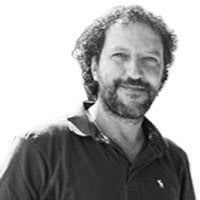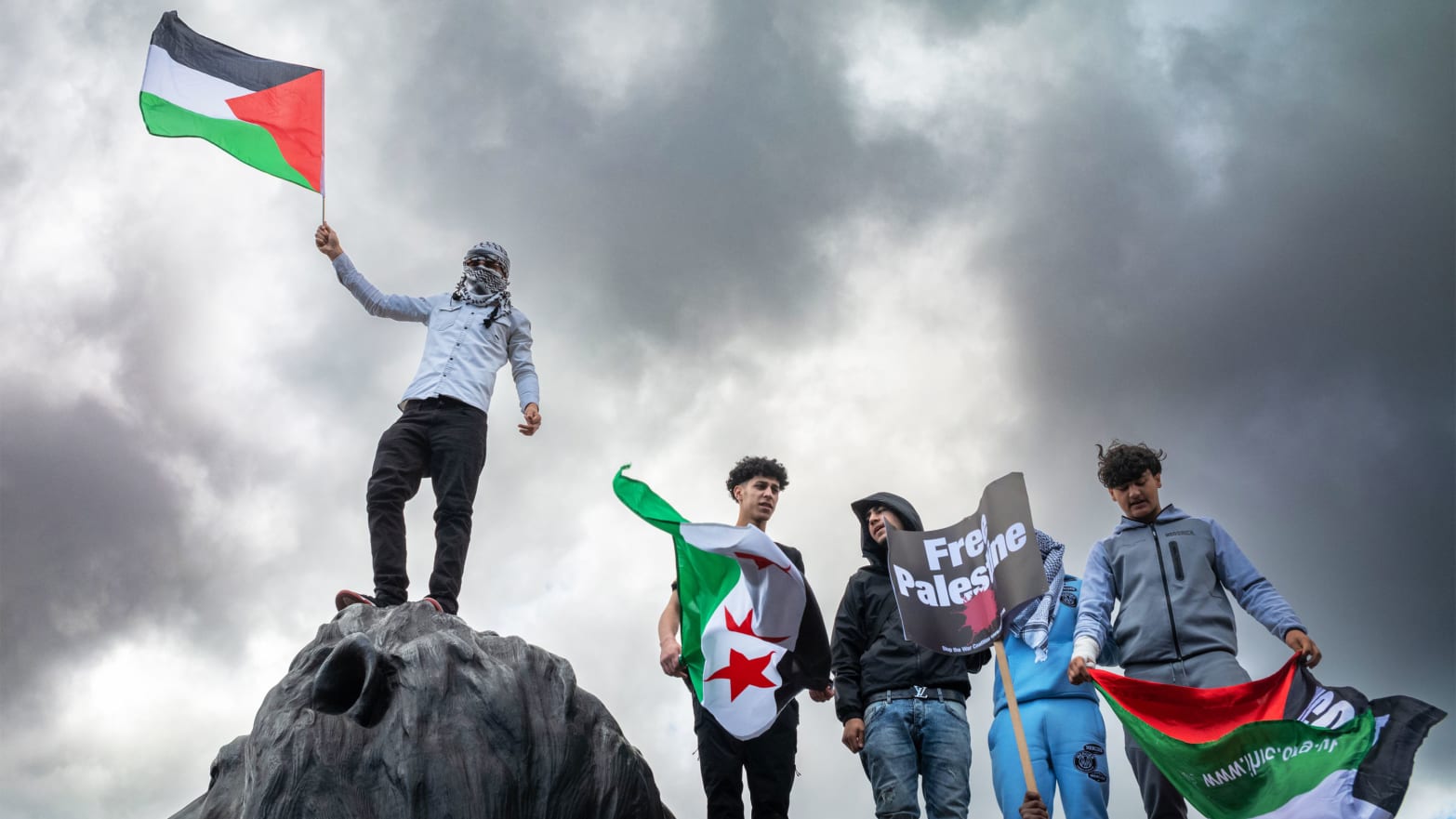I am a Palestinian born into a refugee family, born into the painful politics of this land. I lost an innocent brother to an Israeli bullet, and served years in an Israeli prison, as did my mother, a PLO leader.
I began to practice nonviolence in prison through a 17-day hunger strike in order to see my imprisoned mother. This began my painful journey of adopting nonviolence as a path toward a normal future for all the people of this bleeding land.
And now again this land bleeds. Since Oct. 7, more Israelis and Palestinians have been killed than during the entire Second Intifada. What shall we say to all of those families who have lost and continue to lose their loved ones to the violence of the war. What shall we say to the families—both Palestinian and Israeli—waiting for their loved ones to return home?
Now more than ever, we all must refuse to use violence to justify more violence. We should not allow our pain to blind us to what is most needed: mutually guaranteed sovereignty, security, and dignity for both Israelis and Palestinians.
The world, after 13 days of war in this land, grows increasingly divided into two polarizing camps, one pro-Israel and one pro-Palestine. The intensity of both camps and their campaigns are reaching new heights and depths.
Now is the time to unite in service of a far more important goal: being pro-solution.
As a changemaker, my leadership of the nonviolence movement Taghyeer is to resolve the daily confusion of two conflicting Palestinian identities. The identity of resisting the Israeli occupation by any means necessary, which has not achieved freedom; or the identity of seeking the dignity of citizenship while still struggling under the rule of a military occupation and a failed Palestinian Authority.
Many Palestinians have been building the Taghyeer movement to end this confusion within our society. Taghyeer means “change.” We are Palestinians organizing our fellow Palestinians for social change, community self-development, and a national nonviolent commitment to end this occupation and create a dignified solution for both peoples’ identities on this land.
Nonviolence is the art of our humanity, and I know how hard it is these days to practice that humanity, especially with the ever-increasing number of victims and the failure of hope for any peaceful resolution of this conflict. I also know that nonviolence activism is the only path to solution, because it gives purpose and meaning to such a difficult daily existence.
Today, we are facing the consequences of disastrous political leadership on both sides. Where is the political plan for solution? Where is the moral vision to overcome these catastrophes? Where are the courageous leaders of both Israelis and Palestinians? They have failed their people.
So, too, has international leadership abandoned both peoples. We need serious acts toward achieving a sustainable solution.
Supporting Israel blindly, in reality, does not consider the value of Jewish lives in Israel. Championing Israel’s siege of Gaza and enabling its longstanding occupation of the West Bank will not keep Jewish people safe. Every day, this status quo fuels the desperation of Palestinian people longing for normal lives, to breathe the air of freedom.
The best way to support Israel is to protect both Palestinian lives and Jewish lives.
Israel’s security can only be found through Palestinian independence and security. Any political leader or system that follows a different path is in fact an enemy to Jews and Palestinians alike. The freedom of my people will come through our own actions and the commitment of Jewish hearts to our equal rights. I have seen this already in the hearts and acts of many Jewish people I know in Israel and around the world. We need new leadership and a new political environment based on a vision for a sustainable peaceful solution.
Isn’t it clear there is no military solution?
Fear, hate, and despair, even more extreme than ideology, inflame the region and the world. We need an immediate international convening—perhaps in Saudi Arabia—to start with a ceasefire that can save lives and begin to implement next steps toward a peaceful agreement and normalization for the whole region.
As a leader on the West Bank, I am doing everything possible to end this madness. I am engaging local and international leaders in all that I have said in this statement. I am trying with my colleagues and partners—locally and around the world—to guarantee support for families and activists under a total closure and increasing violence against them on the West Bank. Many people today are being led by their emotions and pain. I understand this challenge all too well. Like so many caught up in this conflict, I am torn in pieces by the inner struggle between my Palestinian national identity and my belonging to all humanity.
But we cannot stand still in the face of how torn we feel. Time is running out. We need to face the whirlwind of rage and hate from the violence engulfing us.
History will not remember the silent. It will remember the courageous ones who manage to stand up, see, and speak of the solution our shared humanity must find. It is the time for the grassroots to rise.

